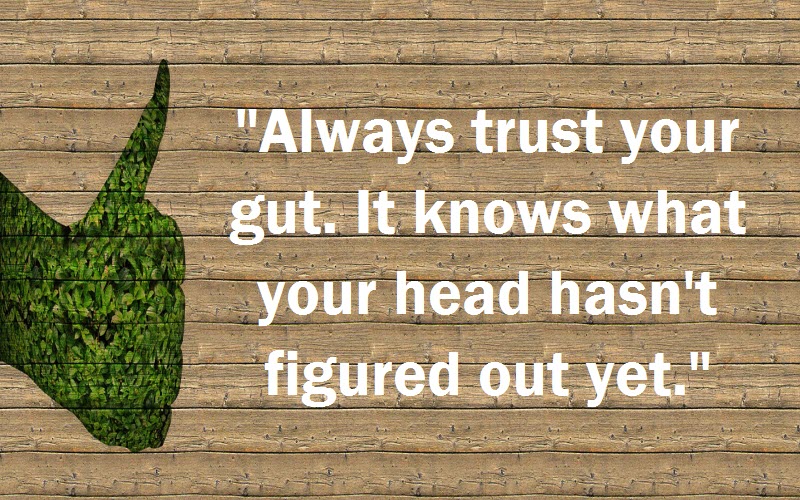
Let’s face it – there are aspects of your life where you simply “know” things.
Whether it’s looking into a new avenue for marketing or production, or noticing that a staff member is having trouble staying focused, sometimes your instincts point you toward problems or new situations that were otherwise unadvertised.
It’s the reason why you approach a team member and ask “Are you OK?” and it’s the reason why you follow through a potential risky idea because you somehow know it will lead to good things in the end.
It all boils down to having a “gut feeling.” And while referencing having “just a gut feeling” is in most cases a poor excuse to move forward, especially if you’re trying to explain a decision, surprisingly, your gut is often steering you in the right direction.
In fact, recent studies have shown that our gut or more scientifically, our responses in the stomach muscles which ultimately connect with our brain is quite possibly on to something.
Think of the last time you saw a scary movie or saw a friend exhibit some dangerous behavior, whether it was dating the wrong partner, making a dangerous decision, or otherwise putting themselves at risk.
Chances are, you had an uneasy feeling that traveled all the way to your stomach, with a coinciding thought process of “This isn’t going to end well….”
Well, these “gut feelings” are actually scientific and natural responses to visual cues that our body senses and interprets based on a lifetime of experiences.
If someone if crossing their arms, changing their facial expressions or otherwise conveying a “there’s trouble afoot” response, our natural reaction goes well beyond our brains and starts with an unpleasant gut feeling.
Think of it as a “short cut” for your eventual response to bad or jarring news. Essentially, when these verbal, visual or physical ticks occur, your body recognizes these factors from unpleasant or surprising incidents in the past and reacts before your brain catches up.
It’s the reason why the first time you saw your spouse, you had butterflies, and why your stomach churns a little before good or exciting news is coming.
On a deeper level, scientists suggest that the reason why you have a “gut feeling” is because your brain searches for relevant comparisons to any given situation, and comes up with an immediate response.
And considering that your stomach has literally millions of nerve cells, it’s no wonder that so many people feel that their gut has a mind of its own.
So should you trust your gut? The answer is yes, but with a good amount of consideration of why your gut is acting the way it is.
Are you making a new decision, or plotting a new path? Then chances are, your gut is reacting simply because it’s unfamiliar.
But are you noticing something wrong without your employees or your overall team dynamic? Then you need to pay attention to your instinct and investigate further.
Chances are, your team members and employees will try to shield you from problems that seem, on the surface, “insignificant” to their higher-ups.
But a good leader knows that a distracted employee ultimately contributes less, and steps into at least address and if possible, correct the situation.
So listen to your gut. When you get the biological signs that something is out of order, pay attention, and determine if it needs further action.
You’re smart, and you’ve gotten to where you are via a series of smart decisions.
So when your short-cut internal response is that something is not in-line with your predictably sensible response, it’s equally smart to take notice.
Is your organization struggling, due to communication styles? WINology Performance Group can help! We will teach your organization how to communicate. Contact us today to learn more or visit us online!
How have you trusted your gut in the past? Let us know in the comments section below!